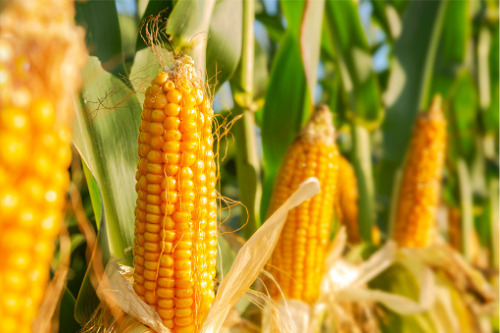

The corn crop in the most productive states in the US could be severely impacted by the effects of climate change, according to new research.
Thirteen states in the US, known collectively as the Corn Belt, produce 90% of the corn grain in the country and nearly 30% of the global corn crop. Using four climate models, the study predicted that yields across the Corn Belt for the decade 2046-2055 would be 20% to 40% less than yields simulated during the 1991-2000 decade.
In addition to the reduction in average yield during the 2046-2055 simulation decade, the year-to-year variation in yield increased dramatically due to climate change, reflecting a reduction in yield stability and an increase in the risk of catastrophic crop losses.
The study was carried out by Verisk in collaboration with the Brookings Institution’s David Victor and experts from AXIS Capital.
“There is justified concern about effects of recent and future climate changes on agriculture both in the United States and across the globe,” said Dr. Peter Sousounis, vice president and director of climate change research at AIR Worldwide, Verisk’s extreme event modeling business unit. “If, or when, climate change brings more frequent and/or more extreme unfavorable weather to areas of significant crop production, such as the Midwestern United States, the potential for significant crop losses and economic impacts would be heightened. The purpose of this study is to further explore these possibilities for the future, more extreme climate changes involving more frequent and more damaging events reducing productivity of major crops.”
To understand the potential impact of climate change on crops, AIR Worldwide used a crop growth and yield model to simulate the effects of observed past and projected future climate change on corn yield throughout the Corn Belt, defined as the following states:
Corn was chosen because it is the most valuable crop in the US and because the US is the world’s largest corn producer.
“Given how much the industry relies on corn production, it’s important to understand its vulnerabilities to the effects of climate change,” said Bob Quane, chief underwriting officer at AXIS Insurance. “Moreover, learnings from this research can be applied to the agriculture industry as a whole, since any disruptions in this sector are likely to affect other global supply chains – from food and beverage to the production of fibers like cotton. As insurers and reinsurers, we have a critical role in understanding and mitigating risks posed by climate change. This research, conducted in collaboration with AIR Worldwide and scholars from Brookings, is vital as we continue to navigate our changing world.”
“Experimental research, statistical analysis of historical crop yield data, and process-based computer simulations all indicate that human-caused climate change is already affecting crops, in some cases for the better and in other cases for the worse,” said Dr. Jeff Amthor, lead author of the study and assistant vice president at AIR Worldwide. “Perhaps of more importance than effects of recent climate trends on crops are the well-established possibilities for future, more extreme climate changes involving more frequent and more damaging events reducing productivity of major crops, including corn, rice, wheat, soybean, cotton and other staples of human food, fiber, and biofuel across many geographies. In any case, we presently face considerable uncertainty about the timing and magnitudes of potentially negative effects of future climate variation and change on crops.”
